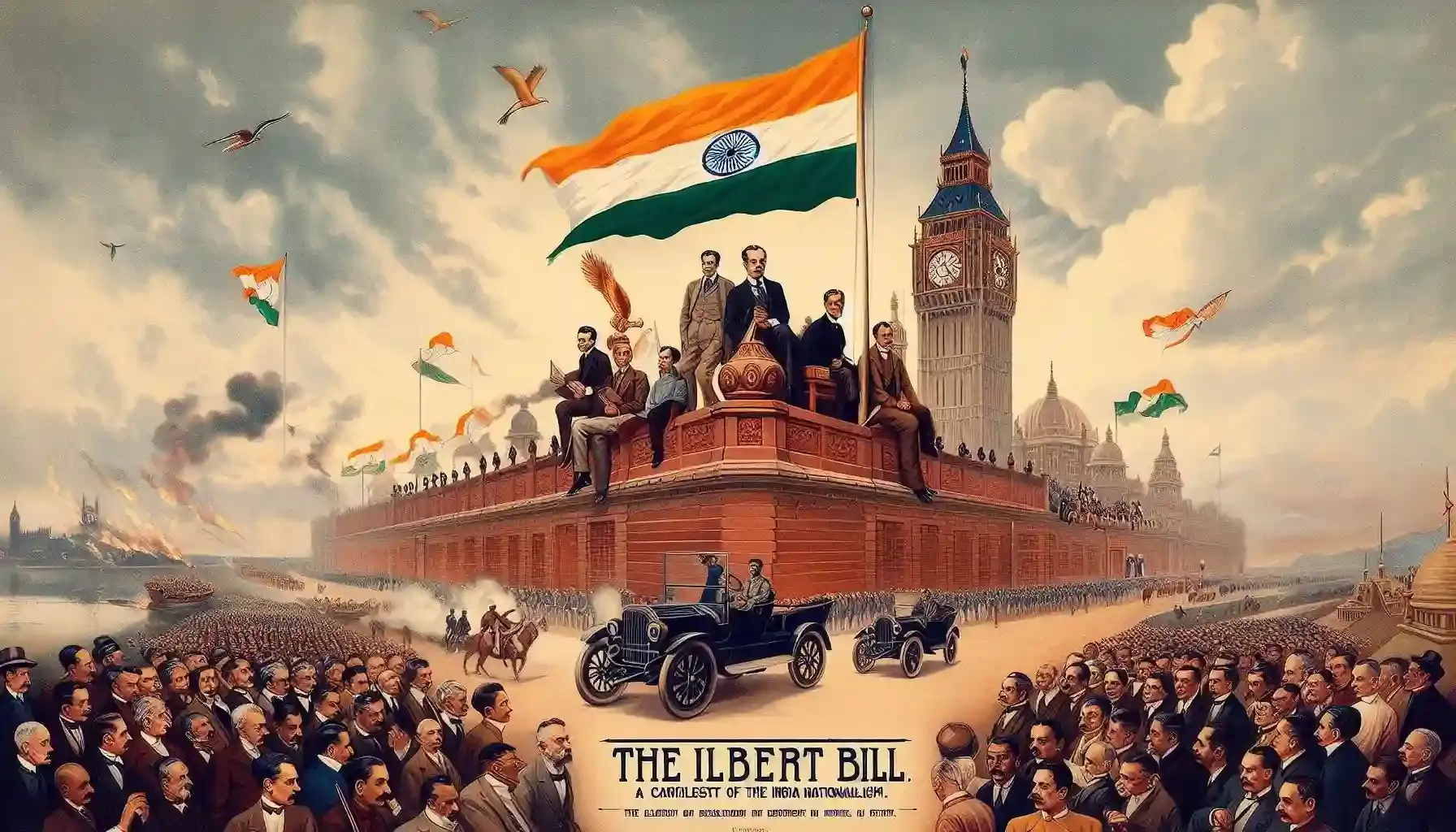The Ilbert Bill Passed: A Compromise on Judicial Reforms in Colonial India
History Indian HistoryPosted by NewAdmin on 2025-01-31 09:02:46 |
Share: Facebook | Twitter | Whatsapp | Linkedin Visits: 26

The Ilbert Bill, originally proposed in 1883 by Lord Ripon, aimed to remove racial discrimination in India’s judicial system by allowing Indian judges to try European offenders in criminal cases. However, strong opposition from the British community in India led to intense debates, forcing the government to modify the bill before its final passage in 1884.
When first introduced, the Ilbert Bill sought to give Indian district magistrates and session judges the same legal authority as their British counterparts, allowing them to try European defendants. This move challenged the long-standing colonial policy that reserved judicial authority over Europeans exclusively for British judges. The British population in India, particularly businessmen, officials, and planters, strongly opposed the bill. They feared it would undermine their racial superiority and protested, claiming that Indian judges were unfit to preside over cases involving Europeans. These objections were rooted in racial prejudice rather than legal competence.
Due to overwhelming pressure from the British community, the bill was modified and weakened before being passed in 1884. The revised version allowed Indian judges to try Europeans but with significant restrictions. Under the new provisions, a European defendant could request a jury trial, and at least half of the jurors had to be Europeans. This meant that while Indian judges were granted the authority to preside over cases involving British subjects, their judgments could still be influenced by the presence of European jurors, making the law less effective in achieving full judicial equality.
The passage of the Ilbert Bill, despite its compromises, was still a symbolic victory for Indian nationalists. It was one of the earliest challenges to British racial policies and demonstrated the growing political awareness among Indians. The controversy surrounding the bill also exposed the deep-rooted racial divide in colonial society and highlighted the resistance of the British elite to any reforms that threatened their privileged position.
Though the final version of the Ilbert Bill did not fully eliminate racial bias in the judicial system, it set a precedent for future legal and administrative reforms in India. The debates and protests surrounding it also contributed to the growing demand for self-governance, eventually leading to the formation of the Indian National Congress in 1885, which played a crucial role in India's independence movement.
Search
Categories
Recent News
- Kannauj's Aromatic Journey to Europe: A Historic Trade Deal
- Chelsea's Cup Dreams Shattered: Fofana's Emotional Exit
- Kante's Turkish Twist: Fenerbahce Seal the Deal
- Kerala Defies Central Advice on Rice Incentives
- Naked Chaos at Bangalore's Elite Club: A Shocking Incident
- Solar Fury: ISRO's Vigil Against Radio Blackout
- Indian Markets: AI Jitters Halt Rally, IT Stocks Take a Hit
- SEBI's Reformative Push for Market Integrity
Popular News
- Navigating IPO Market Dynamics Amid Volatility and Regulatory Changes
- Massive Worldwide Microsoft Outage Disrupts Multiple Sectors
- Panjapur Bus Stand to Reshape TNSTC Routes
- తెలుగుదేశం పార్టీ - పేదరికాన్ని నిర్మూలించడంలో వాగ్దానం
- Universities Embrace Remote Learning Technologies Amidst Ongoing Pandemic